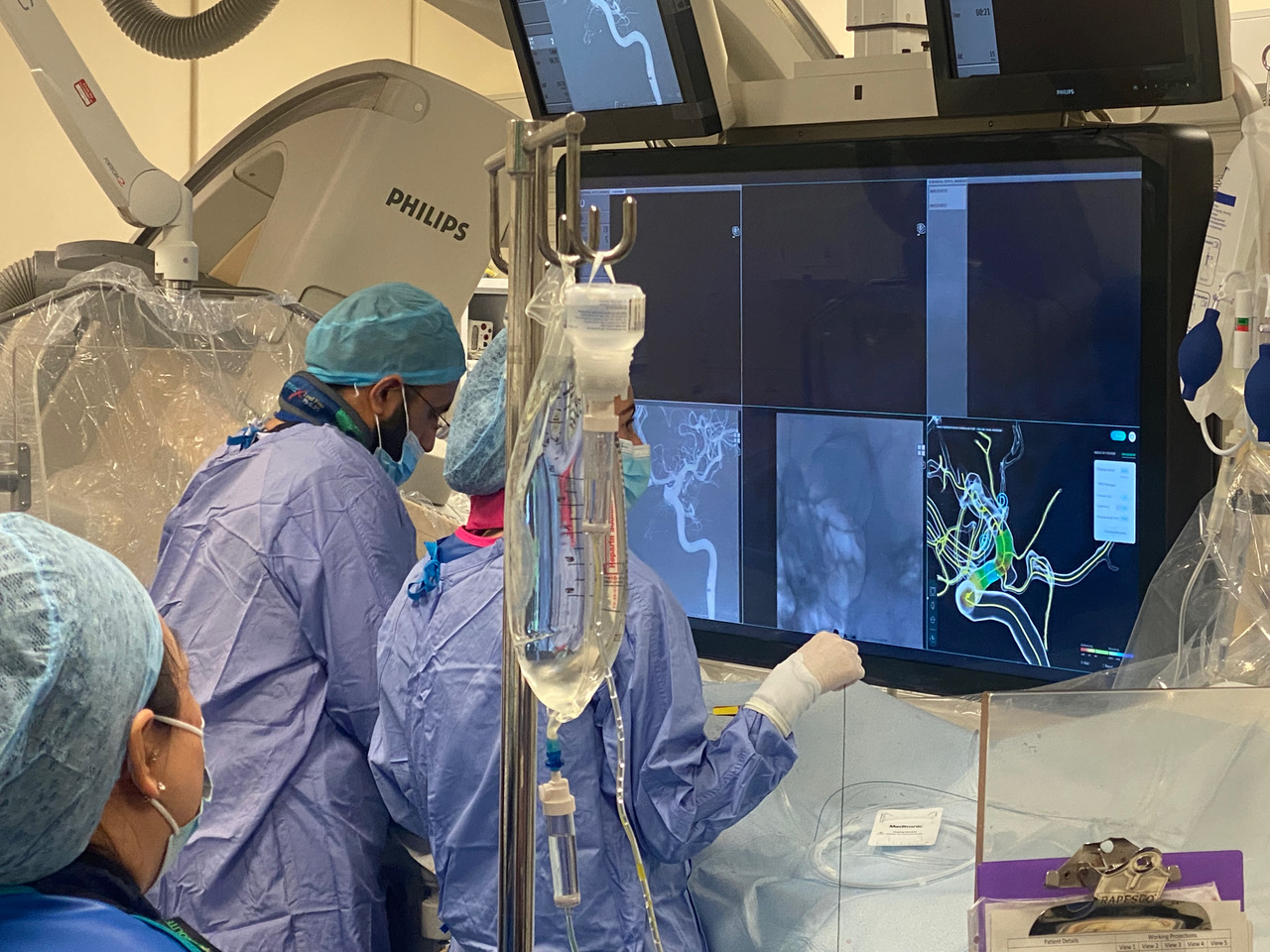“A fraction of a millimetre in a person’s brain can make or break a surgical procedure,” explains Katerina Spranger, CEO, and founder of Oxford Heartbeat.
Now thanks to over £2 million worth of grants from Innovate UK’s Biomedical Catalyst (BMC), the company has developed AI software that helps surgeons treat brain aneurysms with much greater accuracy. This revolutionary device is making the procedure more predictable and should bring costs down for the NHS and, most importantly, save patient lives.

Katerina was inspired to launch Oxford Heartbeat after witnessing first-hand rudimentary technology being used in the health service on multiple occasions. She decided to pivot her career away from her successful role in AI research at Sony Computer Science Laboratory and use her skills in health. After completing a PhD in biomedical engineering at Oxford, she set up Oxford Heartbeat in 2016 and won her first BMC grant in 2017 to develop the company’s first device PreSize® Neurovascular.
So why this device? During her PhD, Katerina learned that every year, 50,000 stenting procedures are performed in the UK. Yet surgeons still rely on manual calculations and 2D black and white x-rays to be able to predict which size stent to use, where to place it and how it will behave within the patient’s brain. She explains:
Every person’s brain is as unique as a fingerprint or a retina. So for the human mind, it’s actually impossible to compute which stent is best and what’s going to happen if you put it in a person’s highly irregular brain blood vessels.
Understandably, with these limited tools, one in five surgeries will result in complications, such as stroke. In one in ten cases, a different size stent is needed. Katerina knew technology could help improve patient chances and make the procedures easier for surgeons. And at £10,000 per stent, it could offer significant cost-savings for the NHS. Enter PreSize Neurovascular, AI-powered software that creates a 99% accurate 3D map of a patient’s brain and accurately predicts the best-fit stent device for each patient.
The BMC grant enabled Oxford Heartbeat to develop its software and secure vital approvals from European and UK regulatory bodies, including CE and ISO 13485. This has allowed the team to go on and test PreSize with leading brain surgeons. In a first-of-its-kind study, eight leading neurosurgeons from America, Europe and the NHS were asked to plan more than 50 clinical procedures, where the final placement of the stent was not known to PreSize or the clinicians.
PreSize showed a consistent accuracy of 95% compared to clinicians at 81%, with one clinician scoring as low as 6.7% on one case. Importantly, it demonstrated that there was no correlation between years of surgeons’ experience and accuracy of their predictions, or the complexity of the case or geographic location. The research proved that Oxford Heartbeat’s ground-breaking technology would give surgeons at least a 10% precision ‘advantage’ which should improve the patient outcomes of these procedures. The study has since been published in the leading journal in its field, The Journal of NeuroInterventional Surgery in June 2023.
Thanks to these advances funded by the BMC, Oxford Heartbeat is now working with the National Institute of Healthcare Research (NIHR) to conduct a landmark trial with ten NHS Trusts. The aim is to recruit 100 patients and gather gold standard evidence about PreSize and its impact on clinical practice in terms of efficiency gains, reduction in planning and procedure time, and reduction in radiation dose. Professor Tufail Patankar is a Consultant Intervention Neuroradiologist at Leeds General Infirmary and is the Chief Investigator for the PreSize NHS trial. He welcomes the new technology saying:
Oxford Heartbeat’s commitment to clinical evidence is unique and paramount. This study is the first to show the wide clinician variability with their current means, and how PreSize helps us achieve the technical precision that is needed in these complex procedures. The clinical trial will be the first to provide gold-standard evidence and I look forward to seeing how the data transforms our field.
So what’s next? Armed with this new compelling data, and supported by The Royal Academy of Engineering, Innovate UK and the National Institute of Health Research, Oxford Heartbeat is now focusing on internationalisation. It is working with the Food and Drug Administration to enter the US market, so it can help more surgeons and patients benefit from PreSize’s game-changing technology.

